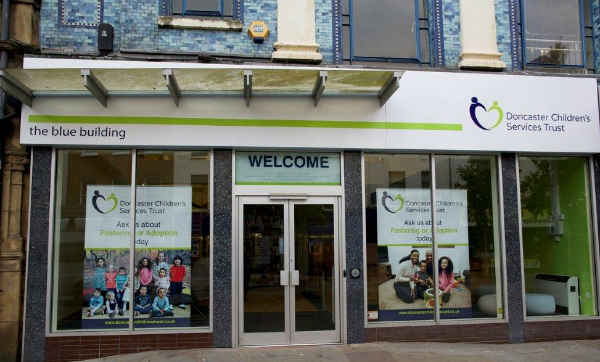
The first children’s services department in England to be taken out of council control is making “clear and continuing progress”, according to inspectors.
Doncaster Children’s Services Trust, which took over Doncaster Council’s children’s services in 2014 after several years of high-profile abuse cases and inspection failures, was commended in several areas of practice, including risk analysis, the quality of assessments, and domestic abuse cases.
The findings came from a monitoring visit by Ofsted in July, the fourth of its kind since Doncaster’s children’s services were rated ‘inadequate’ overall in 2015.
Inspectors focused in particular on progress in help and protection, including contact and referral arrangements, strategy meetings and section 47 enquiries, assessments, and child protection and children in need plans and reviews.
‘Clear improvements’
They found that the council and trust had “thoroughly addressed” recommendations made in 2015’s single inspection, while “clear improvements have been seen in areas identified for further development from previous monitoring visits”.
Areas where improvements were noted included:
- the views and lived experiences of children came through “very strongly” in the cases they saw, “facilitated by effective engagement and direct work from social workers”
- “prompt and thorough responses” ensured that no children were found to be in situations of unassessed or unmanaged risk
- timely progression of work on cases meant that risks for children were reduced effectively
- timely first-line management oversight of work was “evident in all areas of practice covered on this visit, although, in some cases, the rationale for decisions was not clearly recorded”
- performance management and quality assurance information remained a “key strength, which continues to evolve”.
Benefits of co-location
Inspectors also praised the co-location of police, health and education staff in the multi-agency safeguarding hub (MASH).
“This enhances decision-making based on the most up-to-date and proportionate information available,” they said. “An example of added value to the co-location of partners is the ongoing monitoring by the health representative of children identified as having complex health needs, to ensure that they were fully understood within the assessment undertaken by the locality team.”
All assessments seen were “thorough”, with “clear descriptions of children’s views and their lived experiences”.
“These included thorough consideration and observations of children who were unable to communicate verbally, because of either age or disability,” the report added. “There were good engagement and involvement with significant adults and wider family, whose views were incorporated effectively into the assessment and analysis.”
‘Culture of challenge’
Senior leaders had “successfully developed a culture across the workforce of high support and high challenge, with clear practice expectations to improve outcomes for children”, the report said, and there was “an increasing and effective focus on quality and the embedding of the positive performance and quality assurance practice by first-line managers and frontline staff”.
It concluded: “Findings from previous monitoring visits in relation to the approachability and visibility of senior managers and the effective support of line managers have been replicated by workers spoken to on this visit. Workforce stability continues to improve, and this has been reflected in the more consistent quality of practice seen on this monitoring visit.”
Doncaster Children’s Services Trust chief executive Paul Moffat said the report “shows that we all at the Trust recognise the importance of listening to those we are providing services for as well as linking up with partner agencies who can help us determine the best plan of action in each case”.
He added: “We realise there is still more to do and with our partners we are all determined to get on with it.”
The children’s trust launched in 2014 and is commissioned by Doncaster council to deliver services for a minimum of five years. Its target is to be rated as ‘outstanding’ by Ofsted by October 2019.
Ofsted said there was no set number of monitoring visits for any local authority and it would “determine the right time to cease monitoring and schedule a re-inspection on a case by case basis”.
Register now for Community Care Live London for two days of free and essential learning to boost your CPD, sharpen your legal knowledge and improve your practice, on 26-27 September.


 Bournemouth, Christchurch and Poole
Bournemouth, Christchurch and Poole  Hampshire County Council
Hampshire County Council  Lincolnshire County Council
Lincolnshire County Council  Norfolk County Council
Norfolk County Council  Northamptonshire Children’s Trust
Northamptonshire Children’s Trust  South Gloucestershire Council
South Gloucestershire Council  Wiltshire Council
Wiltshire Council  Wokingham Borough Council
Wokingham Borough Council  Children and young people with SEND are ‘valued and prioritised’ in Wiltshire, find inspectors
Children and young people with SEND are ‘valued and prioritised’ in Wiltshire, find inspectors  How specialist refugee teams benefit young people and social workers
How specialist refugee teams benefit young people and social workers  Podcast: returning to social work after becoming a first-time parent
Podcast: returning to social work after becoming a first-time parent  Podcast: would you work for an inadequate-rated service?
Podcast: would you work for an inadequate-rated service?  Family help: one local authority’s experience of the model
Family help: one local authority’s experience of the model  Workforce Insights – showcasing a selection of the sector’s top recruiters
Workforce Insights – showcasing a selection of the sector’s top recruiters 

 Facebook
Facebook X
X LinkedIn
LinkedIn Instagram
Instagram
Comments are closed.